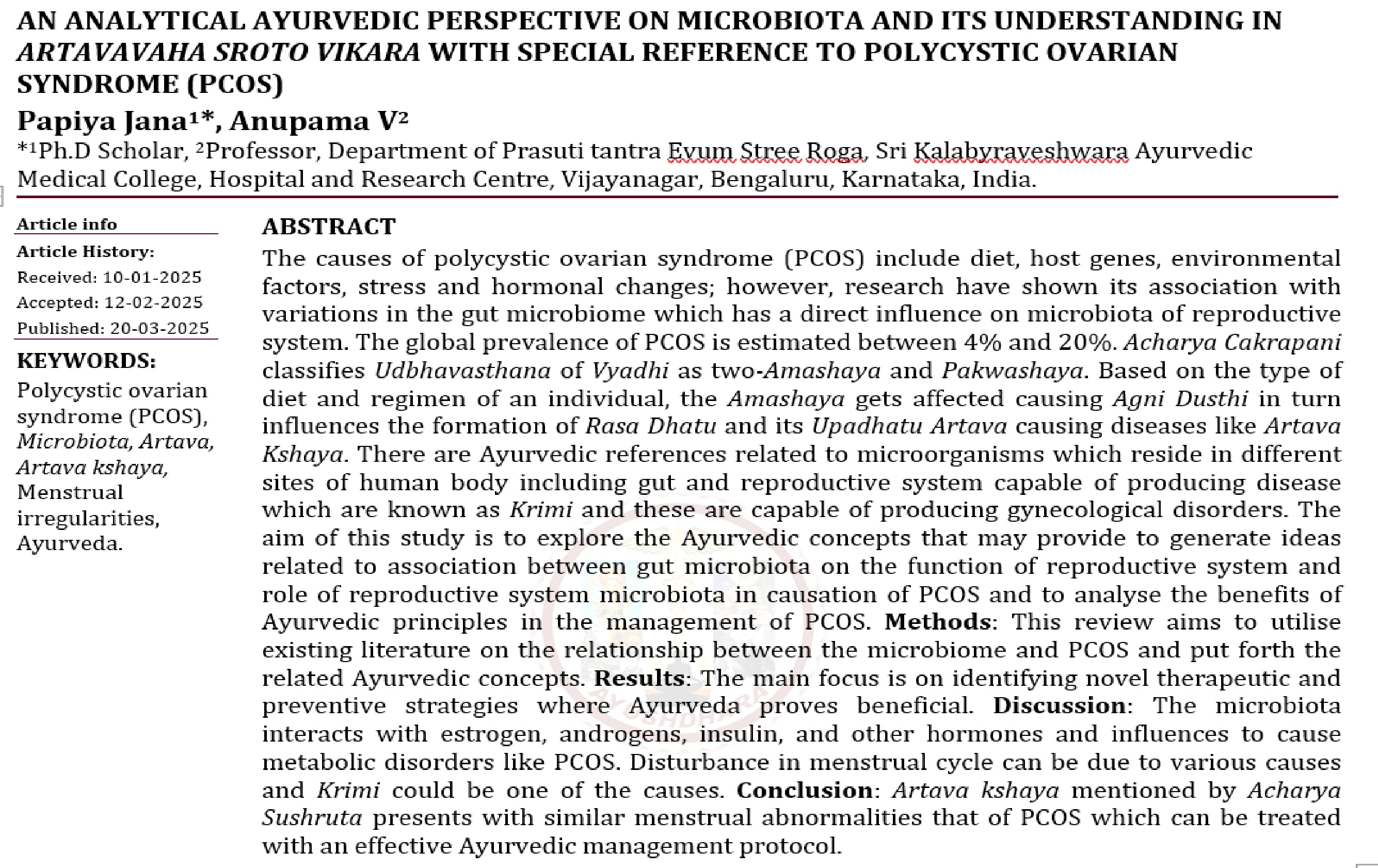An Analytical Ayurvedic Perspective on Microbiota and its Understanding in Artavavaha Sroto Vikara with Special Reference to Polycystic Ovarian Syndrome (PCOS)
DOI:
https://doi.org/10.47070/ayushdhara.v12i1.1912Keywords:
Polycystic ovarian syndrome (PCOS), Microbiota, Artava, Artava kshaya, Menstrual irregularities, AyurvedaAbstract
The causes of polycystic ovarian syndrome (PCOS) include diet, host genes, environmental factors, stress and hormonal changes; however, research have shown its association with variations in the gut microbiome which has a direct influence on microbiota of reproductive system. The global prevalence of PCOS is estimated between 4% and 20%. Acharya Cakrapani classifies Udbhavasthana of Vyadhi as two-Amashaya and Pakwashaya. Based on the type of diet and regimen of an individual, the Amashaya gets affected causing Agni Dusthi in turn influences the formation of Rasa Dhatu and its Upadhatu Artava causing diseases like Artava Kshaya. There are Ayurvedic references related to microorganisms which reside in different sites of human body including gut and reproductive system capable of producing disease which are known as Krimi and these are capable of producing gynecological disorders. The aim of this study is to explore the Ayurvedic concepts that may provide to generate ideas related to association between gut microbiota on the function of reproductive system and role of reproductive system microbiota in causation of PCOS and to analyse the benefits of Ayurvedic principles in the management of PCOS. Methods: This review aims to utilise existing literature on the relationship between the microbiome and PCOS and put forth the related Ayurvedic concepts. Results: The main focus is on identifying novel therapeutic and preventive strategies where Ayurveda proves beneficial. Discussion: The microbiota interacts with estrogen, androgens, insulin, and other hormones and influences to cause metabolic disorders like PCOS. Disturbance in menstrual cycle can be due to various causes and Krimi could be one of the causes. Conclusion: Artava kshaya mentioned by Acharya Sushruta presents with similar menstrual abnormalities that of PCOS which can be treated with an effective Ayurvedic management protocol.
Downloads

Downloads
Published
Issue
Section
License
Copyright (c) 2025 AYUSHDHARA

This work is licensed under a Creative Commons Attribution-NonCommercial-ShareAlike 4.0 International License.


